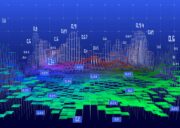
The data science sector is responsible for some of the most in-demand jobs of 2020. It encompasses a range of interwoven roles and skillsets in that there is no agreed-upon definition of a data scientist or data analyst. Thus, individual job descriptions and roles may differ depending on the needs of a particular workplace. But it’s a sector where you can deep dive into a long-term career that is never boring.
1. Data Analyst

Data analysts make numbers accessible to all, with the aim to guide workplace business decisions. During their career, data engineer might be responsible for building data pipelines to get the latest sales, marketing, and revenue data to data analysts and scientists quickly and in a usable format.
They may focus specifically on marketing, operations, logistics or financial analysis with the underlying aim to increase efficiency, reduce costs and increase customers and profits.
Data analysts may be responsible for creating dashboards and designing and maintaining relationship databases and systems within their organisation. They’ll be able to reveal trends, correlations, and patterns in complex data sets and identify opportunities for workplace improvement.
This extends to predictive analytic and future-proofing. They need not only the analytical skills but the soft skills to enable them to communicate their findings to those lay people who find data terminology inaccessible.
If you still have doubts about what is the difference between Data Analytics & Data Science, there is a nice article on Harvard Business School Online that offers a clear explanation.
Requirements: The role typically requires a bachelor’s degree that demonstrates strong analytical and statistical skills such as a degree in maths or computer science.
2. Business Intelligence (BI) Developer
A business intelligence developer is an engineer that designs and develops tools, interfaces, and applications that enable businesses to make better business decisions. These typically include interactive dashboards, query tools, data visualisation and data modelling tools. Tasks include report curation and data modelling, translating business requirements into technical tasks, and technical documentation.
Requirements: It’s a role that requires deep domain experience in software engineering, databases, and data analysis.
3. Geospatial Analyst

A geospatial analyst creates and extracts data from mapping technology that can be used across a wide variety of industries including town planning, transport, location intelligence platforms, epidemiology, retail, and agriculture. This is achieved through a range of tasks such as
- Creating detailed maps, overlays, and associated metadata.
- Importing, cleaning, and understanding geospatial data.
- Map creation using GIS software and other tools.
- Deep analysis of geographic data and transforming it into meaningful assets and insights.
A geospatial analyst not only creates geospatial mapping but also the underpinning that makes the mapping possible in the first instance. The role requires an understanding of geographical tools such as GPS and surveying methodology.
Requirements: Most people in the job will hold a master’s degree in geographic information systems (GIS) or a related field. Other may be able to access on the job training if have engineering experience and/or experience in cartography or surveying.
4.Data Engineer
A data engineer is as the name implies more focused on software development and the practical application of data than analysis. The role includes :
- Compiling and installing database systems
- Writing complex queries, scaling to multiple machines
- Putting disaster recovery systems into place
- Data flow for processing
It’s a hands-on role that requires advanced programming and SQL skills. They’ll be working with large data sets and building data pipelines and be skilled at data storage and manipulation.
Requirements: The role involves a Computer Science or Information Technology degree supplemented with a variety of certification programs and training materials.
5. Data Architect
Data architects building complex computer databases with the blueprints for data management systems to integrate, centralize, protect, and maintain data sources. The role requires a broad knowledge of data sources, data integration, and data flow as well as advanced programming skills and as a high degree of creativity and latitude.
Careers in data architecture requires strong analytical and programming skills with the ability to collect, organize, and disseminate significant amounts of information with attention to detail and accuracy.
Data architects typically are part of a team that includes database administrators, designers, and analysts.
Requirements: The role typically requires a Bachelor’s Degree in Mathematics, Statistics, Economics, Computer Science or a related quantitative field. It also involves a decent number of years of experience in data science such as data exploration and regression models. Strong knowledge in data systems architecture and reporting databases and software is also necessary.
6. Machine learning engineer
A career in machine learning engineer is highly sought after as there is almost no sector that is not impacted by machine learning from education to healthcare and engineering.
Machine learning engineers are typically experienced in advanced programming focused on developing AI applications, systems, and machines. They create algorithms that enable machines to understand commands and teach themselves to think. The role includes machine learning experiments, deploying machine learning solutions and optimizing solutions for performance and scalability.
The role involves a high level of competency in data engineering and data science.
Requirements: The role typically requires a Master’s or doctoral degree in computer science or mathematics. Communication skills are essential to be able to explain processes and decisions to team members as well as strong analytical skills.




